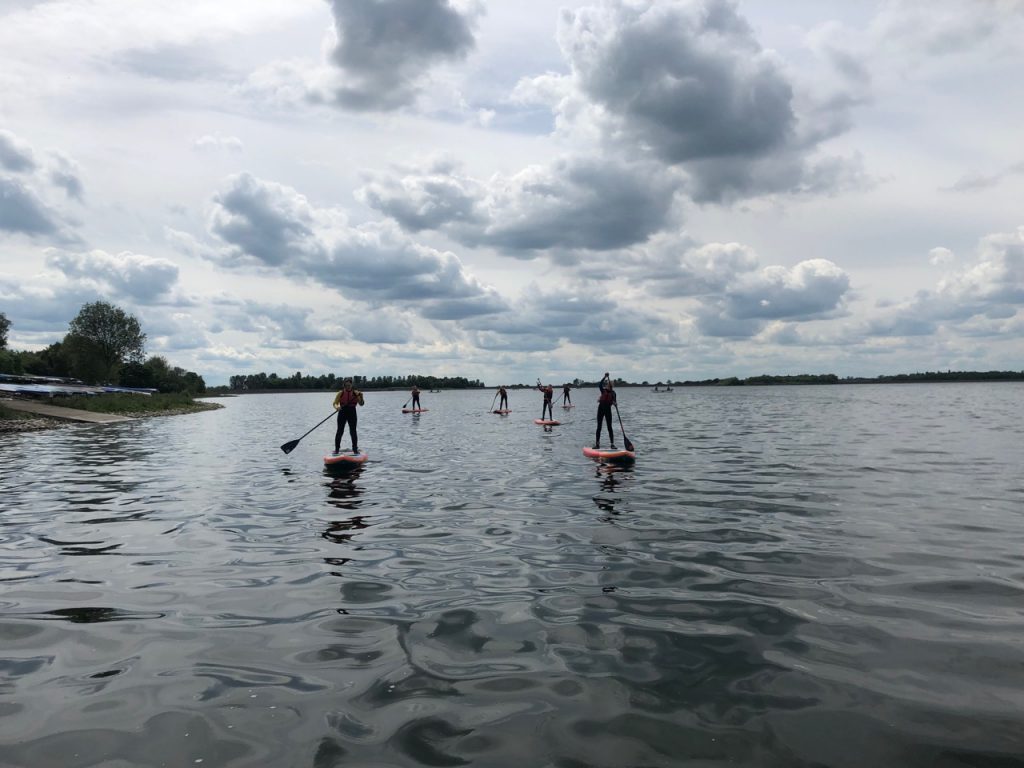Who’s up for SUP?
“What is SUP?”, I can hear you thinking.
Well, if you imagine a cross between a surfboard and a canoe, then you’ll be close.

SUP stands for Stand Up Paddleboarding, and it’s increasing in popularity all over the UK.
Basically, it’s a large inflatable surfboard upon which people stand up and paddle. It works wonderfully in still or low-wind waters.
Some action addicts might initially find ‘Supping’ a little tame and pedestrian… don’t be fooled though. While most of us can’t go that fast there are others who can push their boards to the limits and find the adrenalin-fuelled adventure they seek.
Either way, SUP is a great way to explore the water at your own pace. Although it’s not hard as such, it does present a few challenges…
The main one is not falling in. Balancing on a SUP board is easy when you are lying down or even kneeling but standing up does require a bit of technique… and not toppling over requires concentration.
The ebb and flow of moving on water – however still it may be – means the board constantly wobbles about. Maintaining stability is not hard, but it does test your balance.
Supping is therefore a great way to improve your balance generally.
Improving your core strength is another great benefit. Your upper body gets a workout as the only way to propel yourself forward is through paddling. It surprisingly burns off the calories and soon strengthens your lower back and stomach muscles.
Of course currents and winds can assist you, but then at some point you have to turn around and face the harder challenge of paddling the other way (in fact, it’s always better to start paddling against any winds, tides or currents, making any return journey easier once your tired).
Health benefits are great, but the beauty of SUP is that it’s not just an exercise or work-out regime. It’s great fun and wonderful for your sense of wellbeing.
Because it’s only you on the board and you propel yourself forward, you feel a great connection with the water. It slows everything down so that you experience life in a simpler way. You also experience that sense of adventure that was always present in your life when you were a child.
And because you are moving quite slowly and quietly you are able to get much closer to nature. You see things that you would otherwise scare off or miss.
Any water-based activity has its dangers, and it’s important to wear a life jacket, always. Doing a short introductory course is also important just to help you with some basic technique and give you the necessary safety tips. But otherwise, it really is pretty easy.
SUP is now available at Draycote Water. Once you’ve completed a short introductory course, boards can be hired at Draycote Water Sailing Club.
